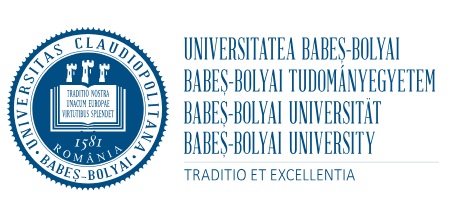University Babes-Bolyai


Strengths
Babeș-Bolyai University in Cluj-Napoca, Transylvania, is Romania’s oldest university tradition and the country’s largest university. Linguistic and cultural diversity is a key element of the UBB, representing not only a singularity in the Romanian university environment, but also in the overall European context. Multiculturalism is a hallmark of the UBB in Romania: with three official languages (Romanian, Hungarian and German), the UBB is home to 24 cultural centres, foreign institutes and libraries.
Major, Academics
Campus
Located at the confluence of Eastern and Western cultures, the UBB is a dynamic higher education institution with deep roots in Central Europe and close international academic links. Its origins date back to 1581, making it the oldest higher education establishment in Romania.
Several sporting activities are organised (football, volleyball, basketball, tennis, etc.) and they take place in the sports park of the University “I. Hațieganu”, which offers sports facilities in a magnificent natural setting.
There are many cafeterias on campus.
To discover
With a population of around 400,000 (including almost 100,000 students), Cluj-Napoca is a lively, active and dynamic city at the centre of the Transylvania region.
Cluj-Napoca is both the economic and cultural centre of Romania.
The city is the place where Romania’s largest banking group (Banca Transilvania – BT Grup) was founded and where the group currently has its headquarters, Cluj-Napoca being a major financial and banking centre in which all the main players in the Romanian financial and banking sector are active.
At the same time, Cluj-Napoca is home to the regional or national headquarters of many multinational companies: E.ON, MOL, Emerson, De’Longhi, Bosch, Office Depot, Genpact, FrislandCampina, New Yorker..
The remarkable urban architecture, the many cultural and religious attractions (museums, churches, theatres, cinemas, monuments and historic buildings, etc.), the variety of restaurants, bars and shopping centres, and the wide range of cultural events make Cluj-Napoca one of the most attractive cities for young people. The city was designated European Youth Capital in 2015 and European City of Sport in 2018.
The best way to discover Cluj-Napoca is on foot, on a tour that will show you almost everything you want to see on your first foray into the city.
Cluj-Napoca is a multi-ethnic and multi-faith city, with over 70 churches and cathedrals, many of which are historic monuments worth visiting. Cluj’s palaces, sumptuous buildings and former noble residences, built in a variety of architectural styles, still retain their beauty of yesteryear.
Good to know
This region of Romania (Transylvania) is best known as a mysterious land of “bloodthirsty vampires” associated with the famous character Dracula created by Bram Stoker, but beyond this image there are many treasures to discover.
Surrounded by the Carpathian Mountains, this land offers tourists wild landscapes with forests, lush pastures and flowering meadows that are home to some of the largest lynx, deer, wolf and bear habitats in Europe.
Travelling in Transylvania, you can discover “the last truly medieval landscape in Europe” through the charm of Saxon villages and fortified churches, horse-drawn carts, shepherds tending their flocks of sheep and villagers making hay under the sun.
The number of places in Erasmus + is limited. The granting of the scholarship is therefore not automatic and the amount may vary. However, we invite you to apply because exchange places (excluding Erasmus +) may be offered. Please refer to the Erasmus+ section.
The data is for information only.
Please visit the partner university’s website to make sure you have the most up-to-dateinformation.
Eligibility
Score TOEFL 533
ICD PGE, BBD
ICD BEM
ISTEC PGE3, PGE4
Documents required
Resume (in English)
Transcript of records
ID Document
Cover letter (in English)
Additional documents will be requested according to the destination
Planning
AUTUMN
Orientation: few days before lectures start
Lectures start : early October
End of lectures and exams : mid-February
SPRING
Orientation: few days before lectures start
Lectures start : end of February
End of lectures and exams: end of June
More information: https://www.ubbcluj.ro/en/studenti/invatamant/structura_anului_universitar
Procedures
All non-EU students must apply for a residence permit within 30 days of their arrival. The residence permit must cover their entire stay in Romania.
EU nationals will need a registration certificate. The university will provide you with all the necessary information.
More information: https://mae.ro/en/foreign-missions
European Health Insurance card compulsory.
Accommodation
You will be accommodated in university halls of residence, in double or triple rooms.
Rent is around €50/month, depending on the dormitory.
More information: https://www.ubbcluj.ro/en/studenti/campus/spatii_cazare

